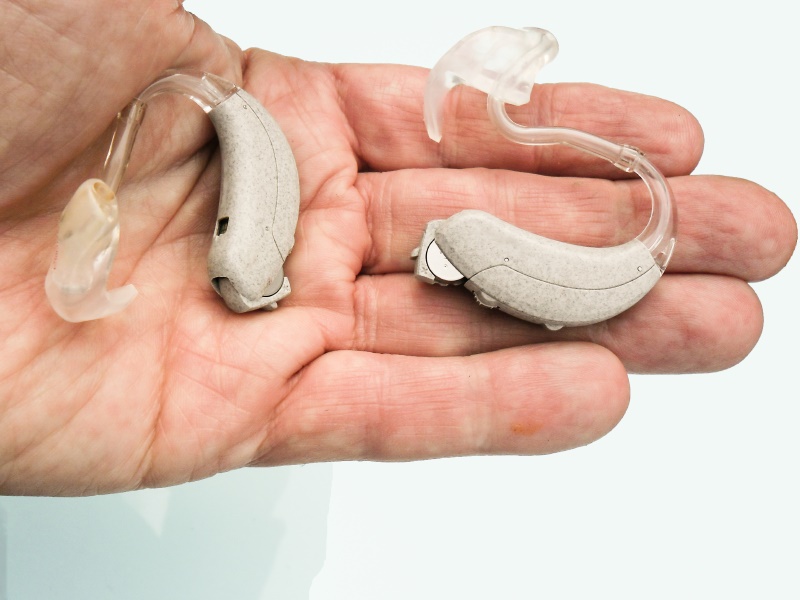
To help keep your hearing aids functioning properly for years to come, you need to learn about proper care and maintenance. And although it may feel like an additional burden, with the right process your hearing aid care will become effortless and automatic.
The trick is building effective habits.
If you incorporate your hearing aid care into your everyday and nightly routines, before too long it won’t seem like any extra work at all.
Below are some tips for the daily care of your hearing aids (which your hearing specialist will also review with you):
Clean your hearing aids daily – Make an effort to incorporate your hearing aid cleaning into your evening routine, so it will become as automatic as brushing your teeth. This is important because daily hearing aid cleaning can minimize the build-up of earwax, dirt, and dust into the various components of the hearing aid, which can lead to distorted sound over time.
You’ll want to clean your hearing aid with a soft, dry cloth, while averting any liquids that can destroy the hearing aid electronics. Talk with your hearing professional for specialized guidelines on cleaning each kind of hearing aid.
You may also want to consider purchasing a hearing aid sanitizer, which uses ultraviolet light to safely and completely kill dangerous pathogens. Hearing aid cleaning kits are also obtainable with all of the instruments you’ll need to safely and securely clean the device without harming the electronics.
Always check the batteries – Hearing aid batteries should always be tested and replaced regularly to assure peak hearing aid operation. Consider using a battery tester early in the day to assure you have plenty of power for the rest of the day, and keep a spare set of batteries on hand.
Before bedtime, when your hearing aids are not being used, turn them off and store them in a cool, dry spot with the battery door open.
Store your hearing aids in a safe and secure place – With respect to storage, you’ll want to bear in mind three things:
- Keep the hearing aids away from moisture. This means that storing your hearing aids in the bathroom is probably a bad idea.
- Avoid exposing the hearing aids—and hearing aid batteries—to temperature extremes. You’ll want to store your hearing aids in a cool, dry place.
- Avoid storing your hearing aids out in the open, where they can become damaged.
We recommend keeping your hearing aids in a container or drying kit inside the drawer of a bedroom side-table. This will protect the hearing aids from moisture, temperature extremes, and damage from being knocked off the table.
Also, remember to take out your hearing aids prior to showering, swimming, or using a hair dryer or hair spray.
Maintain ear hygiene – Even though earwax has many useful attributes, including protection and lubrication of the ear canal, it can cause severe damage to your hearing aids. As it becomes lodged within the hearing aid components, sound can become distorted.
Ensure that you’re maintaining appropriate ear hygiene, and if you experience excessive earwax, consider scheduling a consultation with a professional.
Carefully put in your hearing aids – While inserting your hearing aids, lean over a table or soft surface in the event the hearing aids fall. Hearing aids contain sensitive electronics, so a fall on a hard surface could cause severe damage.
Even with meticulous cleaning and maintenance, after a while the hearing aid will call for more comprehensive cleaning or repair.
To ensure that you consistently get the best sound possible, we advise getting your hearing aids professionally cleaned by a hearing specialist at least twice a year.
Hearing care professionals can render a deep cleaning, a tune-up, and will on occasion replace parts. Staying current on this regular maintenance will prolong the life of your hearing aids and will ensure that you get the best sound.